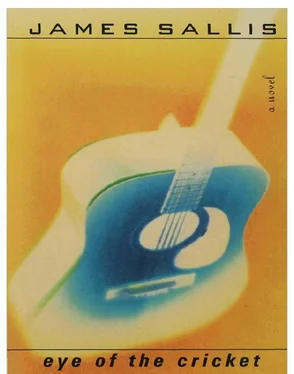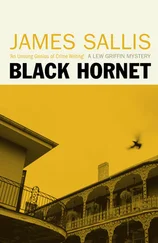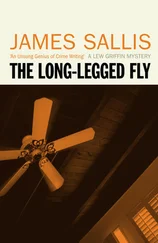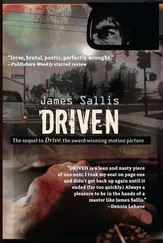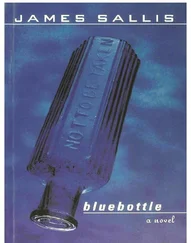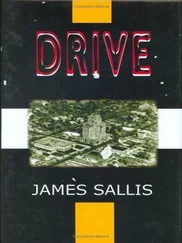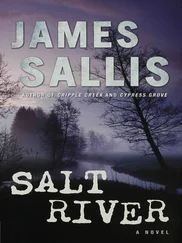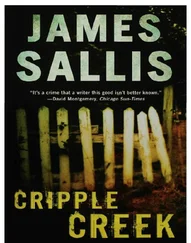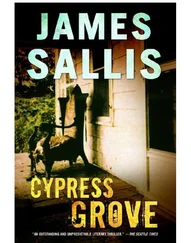James Sallis - Eye of the Cricket
Здесь есть возможность читать онлайн «James Sallis - Eye of the Cricket» весь текст электронной книги совершенно бесплатно (целиком полную версию без сокращений). В некоторых случаях можно слушать аудио, скачать через торрент в формате fb2 и присутствует краткое содержание. Жанр: Криминальный детектив, на английском языке. Описание произведения, (предисловие) а так же отзывы посетителей доступны на портале библиотеки ЛибКат.
- Название:Eye of the Cricket
- Автор:
- Жанр:
- Год:неизвестен
- ISBN:нет данных
- Рейтинг книги:3 / 5. Голосов: 1
-
Избранное:Добавить в избранное
- Отзывы:
-
Ваша оценка:
- 60
- 1
- 2
- 3
- 4
- 5
Eye of the Cricket: краткое содержание, описание и аннотация
Предлагаем к чтению аннотацию, описание, краткое содержание или предисловие (зависит от того, что написал сам автор книги «Eye of the Cricket»). Если вы не нашли необходимую информацию о книге — напишите в комментариях, мы постараемся отыскать её.
Eye of the Cricket — читать онлайн бесплатно полную книгу (весь текст) целиком
Ниже представлен текст книги, разбитый по страницам. Система сохранения места последней прочитанной страницы, позволяет с удобством читать онлайн бесплатно книгу «Eye of the Cricket», без необходимости каждый раз заново искать на чём Вы остановились. Поставьте закладку, и сможете в любой момент перейти на страницу, на которой закончили чтение.
Интервал:
Закладка:
Within the week I was transferred to a halfway house in midtown, a once-grand home now given to dangerously sagging porches and balconies with railingslike decayed teeth, across the street from a service station recently converted to a falafel house, sheets of plywood still stacked along the side. Holding on for dear life, and for lack of any other entertainment, inmates sat out on the balconies to watch citizens come and go.
A couple of weeks later I was home, where this time Zeke, in turn, met me at the door.
"This is my son, Brother David," I said, and everyone laughed: Richard Garces, Don, Deborah, Norm and Ray "RM" Marcus from up the street. All of them had come to see me home. And they'd all brought food.
For the next hour or two we worked our way through, around and over pots of red beans and rice with grilled sausage, steaming gumbo from which protruded various claws and halves of bivalve shells, tasso on a bed of mixed greens, boiled crawfish. We'd covered the kitchen table with newspapers. Garces and Norm Marcus were in competition to see who could collect the biggest heap of crawfish bodies.
I'd taken one look at my own pile of bodies, all the mail that accumulated while I was away (life goes on), and dumped it in one of the boxes people had brought food in. Over the next few weeks that box would move otherwise untouched from kitchen floor to pantry to a closet shelf to the trash can I set out curbside each Tuesday and Friday.
Zeke made untold pots of coffee and, for Deborah, cup after cup of tea, which he delivered to her on a small tray complete with cream pitcher, lemon slices, vat of sugar and a demitasse spoon he'd found somewhere. Hard to tell whether she or he got the bigger kick out of it.
Music was catch as catch can. Whoever firstnoticed the last record, tape or CD was done went over and put on whatever he or she wanted to. Irememberhearing Fats Waller, Mozart's horn and clarinet quintets, Arrested Development, Frank Sinatra punching out lounge-lizard standards (no idea how that ever got in there: not mine), Blind Willie McTell and wife, the Charlie Christian Minton sessions, Irish music recorded live at Matt Malloy's, Springsteen's The Ghost of Tom Joad. At one point someone even pulled out Buster Robinson's old BlueStrain record and put that on.
Hours later Don and I found ourselves sitting on the bench under the tree in the backyard, by the slave quarters. People still moved around inside the house, in the light. Dark out here. Moonlight pushing through clouds, through humidity that shelled the moon in nacreous layei's, made it a pearl. A few more neighbors had shown up, a teacher or two, Sally Mara with her latest young man, the two of them all in black. Keith LeRoy wearing perfect English.
"I hope you know how happy I am for you, Lew," Walsh said. "I mean that."
"I know you do."
"So what's up? David planning to stay here awhile?"
"I hope so. I've asked him."
"Good. That's good."
Inside, Garces, Norm and RM were trading dance moves. They were about equally bad, and loving it. Heads thrown back. Laughing.
"And Deborah? How do things stand there?"
I shrugged. "We'll see. Give time time, as the twelve-steppers say."
"Yeah. Has to be tough for her, all this coming down on her at once."
"Yeah."
"No question how much she cares, you know. All she can do just to take her eyes off you in there."
Zeke pressed his face against the glass and peered out at us. Don and I waved.
"Do me a favor, don't fuck this one up, Lew."
"I'll try."
"Sure. Sine you will." After a moment he added, "I'm pulling for you."
"You always have."
"Just don't expect as much out of her, out of the rest of us, as you do from yourself."
"You're saying this to a man who three weeks ago was drinking dregs out of beer bottles, cigarette butts and all."
"Yeah, but I didn't say anything about what you do. I was talking about what you expect of yourself."
We sat together awhile without saying more. Faintly I could hear people's laughter from a neighboring yard. Some guest I didn't know stepped just outside the kitchen door to smoke, nodding politely towards Don and me. A squinel leapt from roofs edge to banana plant, came within half an inch of not making it.
"He was a fuckup, Lew. Always had been. Lazy as overcooked spaghetti. Weak. No skills, social or otherwise. Never gave me reason to think he'd ever be anything else."
Minutes went by.
"I loved him, Lew. No one else can understand that the way you do.
I miss him. Always will."
I slid my arm up over my friend's shoulder there in the close New Orleans night, in that struggle of moonlight.
37
The struggles continue. For all of us, I guess.
Very strange to have this house full of life again.
I'm sitting here in the slave quarters looking across to the house, thinking about past months.
David stayed over a week, then another, and before long without ever discussing it we all knew he lived here. Goes off to work in the morning and comes home every night just like a businessman, taking care of the city's wounded and walking dead. Some days I go along with him.
Zeke never quite got around to moving out either. He works for the Times-Picayune as an investigative reporter. "Same thing I always did," he likes to tell people, "only now they let me walk around a lot more."
Walsh even moved in for a while there, most of a month, when nights got too hard, shadows too deep and thoughts of Danny crowded close. Eventually he pulled things back into place and went home. But while he was here, evenings after dinner we'd sit outside talking. Remembering back to when wefirstmet, recalling our search for the sniper, how Don had pulled me out of the first of many hells I'd made for myself, the late-night call when I learned that Don's wife had left him and taken the kids, David's disappearance, Danny. Beneath it all, tacitly, the way men our age do, I'm sure we were asking ourselves how all those years had got by us.
David, Zeke, Walsh. A couple of others too-but I'll save that.
Meanwhile, something extraordinary sits on the desk beside me. I've spent almost six weeks, night and day, working on this, and now I have no idea what I'll do with it.
Look back and you'll see how I tried to turn a letter to Vicky into a rewrite of The Old Man. you'll come across me trying to transform my first meeting with La Verne from memory to meaningful, fact to fiction. Skip or so and you can watch me tinker with a dream I'd had, fumbling to graft it onto Deborah's sudden appearance in my life.
Look tiirough the published books and you'll find much the same.
What I did here, in this extraordinary thing sitting beside me, is this: I quit trying. Quit tiying to finesse the failures and forfeitures of my life intofiction. To tuck people I'd loved safely away in the corners of novels. Quit trying to force patterns, however comforting and fetching and artistic these patterns might be, onto the catch-as-catch-can of what I actually lived, the rigorous disorder of my days.
This extraordinary thing is my autobiography.
And I've no idea what to do with it, no idea at all.
Publishers aren't likely to be interested in an account so plain and unembellished, so down, so apart. Should I publish it as fiction? No doubt my editors (though I 'd feel it a deep dishonesty) would welcome this.
Maybe best that I simply file it away with all the other papers, all those fat files neither I nor anyone else will ever read again, its frail purpose served.
Six-forty. Almost dark. Zeke walks into the kitchen to start dinner, snaps the lights on and waves through the window above the sink.
Minutes later David shows up, home early ("misery down thirty percent in New Orleans today"), and knocks at the door with camomile tea. Dinner in an hour, he says-"Zeketime, of course," which means closer to two.
Читать дальшеИнтервал:
Закладка:
Похожие книги на «Eye of the Cricket»
Представляем Вашему вниманию похожие книги на «Eye of the Cricket» списком для выбора. Мы отобрали схожую по названию и смыслу литературу в надежде предоставить читателям больше вариантов отыскать новые, интересные, ещё непрочитанные произведения.
Обсуждение, отзывы о книге «Eye of the Cricket» и просто собственные мнения читателей. Оставьте ваши комментарии, напишите, что Вы думаете о произведении, его смысле или главных героях. Укажите что конкретно понравилось, а что нет, и почему Вы так считаете.
